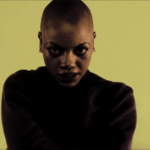The Go-Betweens were formed in 1977 in Brisbane by Grant McLennan and Robert Forster who went on to become two of the finest and most enigmatic songwriters in music. They had a number of different line-ups over the years but always worked with people that would complement the rich songs they wrote. In the late ’70s, they began with post-punk stylings, influenced by The Velvet Underground, Television and The Modern Lovers. It wasn’t long before Forster and McLennan found their own sound. They released nine albums in total that were full of clever little details and compelling storytelling. McLennan tragically died in May 2006 before they got to make a tenth record. Although Forster continues to make solo records (including last year’s brilliant Songs To Play), The Go-Betweens will always be missed.
Forster recently returned to the UK to play shows where he has performed a mixture of solo material and Go-Betweens classics. It’s also 30 years since the release of their masterpiece, Liberty Belle & The Black Diamond Express. Really, though, there doesn’t need to be a reason to celebrate this special group. Along with Felt, they were one of those groups that had critics on their side but never got past being a cult success, despite being incredibly consistent. They held their own with the best records released by The Smiths and should have had a similar breakthrough as R.E.M. Despite the lack of success, their legacy lives on through the music; their influence can be heard in fine groups such as Belle & Sebastian, Real Estate and The Clientele.
Karen (1979)
The Go-Betweens first single, ‘Lee Remick’ was backed by one of their finest B-sides, ‘Karen’. It comes across as a lo-fi Rolling Stones covering Patti Smith as the tempo speeds up to a thrilling end. ‘Karen’ is awkward and rough around the edges but shows the alluring effect of mystery was in their songwriting right from the beginning.
I Need Two Heads (1980)
Their third single was released on the brilliant Postcard Records. Like other Postcard releases by Orange Juice and Josef K, ‘I Need Two Heads’ shares a similar ramshackle naive charm. It contains the gentle humour that made Go-Betweens such loveable lyricists, my favourite line being, “the best detective is a child detective.” Good to know.
A Bad Debt Follows You (1983)
1982’s debut album, Send Me a Lullaby is the only Go-Betweens record that could be called below average. After some great singles, it didn’t quite deliver on their early promise. 1983’s Before Hollywood was a huge improvement with sharper songwriting and clearer production. ‘A Bad Debt Follows You’ opens the album in intriguing style with a twisting time signature, spiky guitars and a sinister organ before ending abruptly after two-and-a-half minutes. I have to give an honourable mention to McLennan’s glorious, ‘Cattle & Cane’ from the same album, which is arguably their signature tune.
Bachelor Kisses (1984)
Forster and McLennan made a career out of writing incredible pop singles that should have caught on. The lush, ‘Bachelor Kisses’ is one of the best examples of these. It’s one of their most gorgeous and dream-like melodies. The way it glides into its chorus is absolutely spellbinding. The bittersweet romanticism of McLennan singing, “don’t believe what you’ve heard, faithful’s not a bad word,” gives the song an endless charm.
Twin Layers Of Lightning (1986)
30 years on, Liberty Belle & The Black Diamond Express remains the most satisfying and complete record The Go-Betweens put out. The shimmering, ‘Twin Layers Of Lightning’ was the song that really made me fall for this group. It showed how far they’d come from being a band that started out wearing their influences firmly on their sleeves. It contains my favourite set of Go-Betweens lyrics, “Bouncer’s got no brains/Said both of you are barred/I had to set him straight/Listen, Jack, don’t you know I’m a star.” It’s sung in a detached manner by Forster who always knew how to deliver a great line with so much panache.
The House That Jack Kerouac Built (1987)
Tallulah contains some of the band’s most well-loved songs such as the perfect pop of ‘Right Here’ and ‘Bye Bye Pride’. This dramatic moment has always been a standout. Stabs of strings add atmosphere to some of the darkest lyrics Forster wrote, “I know you’re warm/The warmest person alive/But are you warm/Deep down in inside?” In the intense coda, he repeats, “Baby I’m lonely/You’re on road with a bad crowd,” giving the song no happy hending. It’s one of the most powerful songs penned by Forster.
Dive For Your Memory (1988)
16 Lovers Lane is often referred to as their masterpiece. It came out just before Forster and McLennan broke up the band and spent the ’90s releasing solo albums. It’s their prettiest and most nuanced record containing ‘Streets Of Your Town’ which was the closest they came to commercial success. The record ends with this fragile lullaby which finds Forster in reflective mode as he sings, “I just wish you’d remember that bad times don’t get you through.” The chorus shows how well Forster and McLennan could blend their intricate harmonies to create a beautiful sense of melancholy.
The Clock (2000)
After a decade apart the band came back with one of their strongest albums, The Friends of Rachel Worth. Forster and McLennan sounded re-energised and played with members of the excellent Sleater-Kinney who helped make some of their most vital songs. ‘The Clock’ is one of their rockiest songs with one of the most effortless and addictive choruses The delicate harmonies and minimal solo are a sign of their unique talents.
Old Mexico (2003)
Bright Yellow, Bright Orange is the least essential of their three records from the ’00s, but it’s still a solid set that showed they hadn’t lost a knack for brilliant pop songs. McLennan’s, ‘Old Mexico’ is one of the most enjoyable songs on the record. A playful and funky guitar line plays through the verse before the chorus explodes into life accompanied with yet more gorgeous vocal harmonies.
The Statue (2005)
It’s not often a band makes some of their very best music this late into their career, but almost 30 years after The Go-Betweens formed, they did just that on 2005’s Oceans Apart. It’s a brilliant record that’s full of self-assured songwriting that makes it even more heartbreaking to accept that it’s their final album. ‘The Statue’ is the perfect embodiment of the nostalgia and poignancy that filled The Go-Betweens songs. McLennan was responsible for some of their best and most simple pop melodies. This is up there with the most moving he wrote as he repeats, “I needs your touch,” over washes of comforting synths and yearning guitars.
Demon Days (2008)
Robert Forster’s 2008 album, The Evangelist stands strong with the very best Go-Betweens records. It’s heartbreaking and uplifting in equal measures. ‘Demon Days’ was one of the last three songs that were written with McLennan’s involvement, making them the last batch of Go-Betweens songs. ‘Demon Days’ is also one of the most devastating songs in their back catalogue. Forster sings, “something’s not right/Something’s gone wrong,” with the pain and sadness caught in his voice over an emotional orchestral arrangement. It’s a stunning tribute to one of the most inspiring musical partnerships there has ever been.
Photo courtesy of http://www.go-betweens.net/




